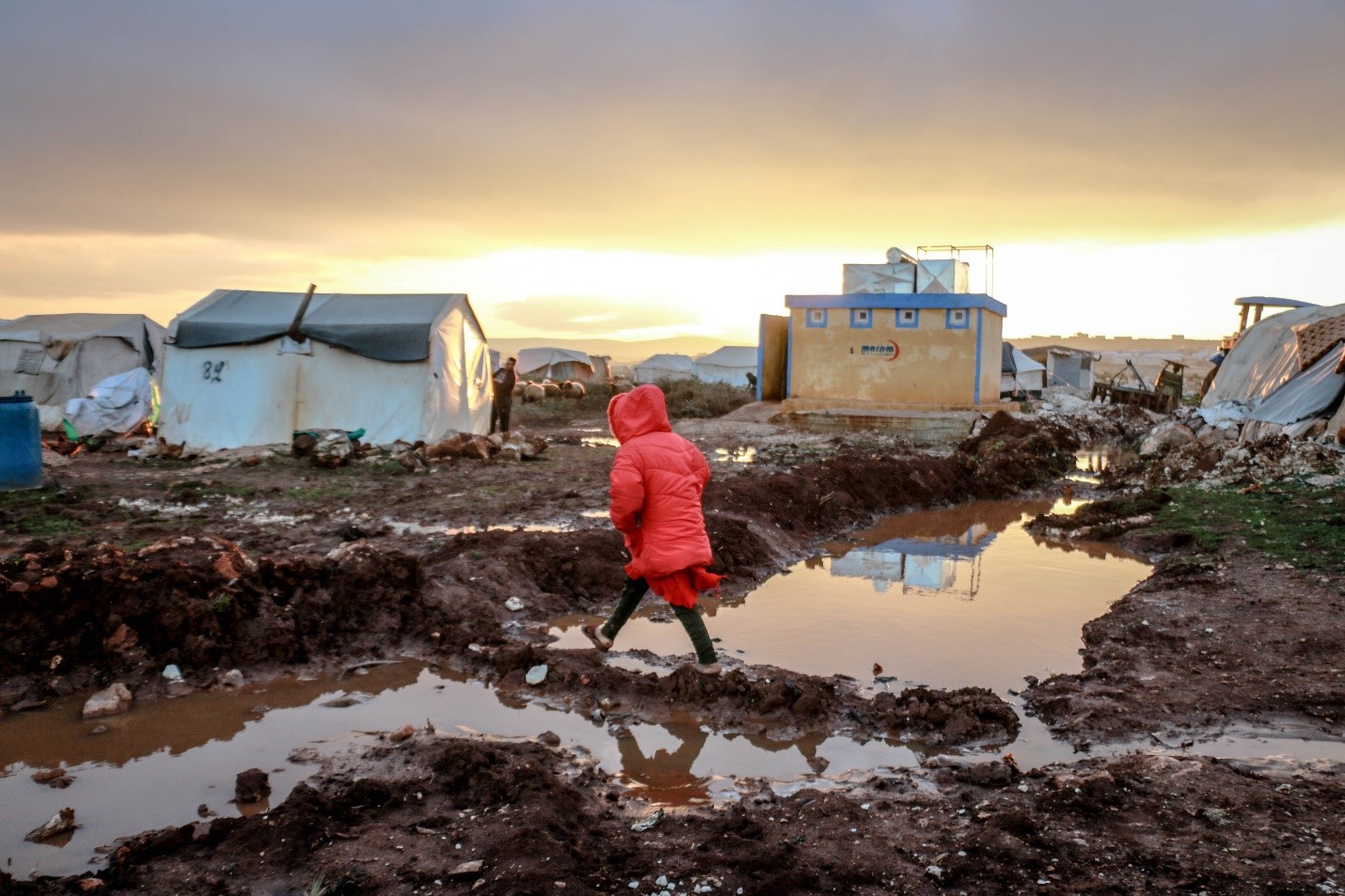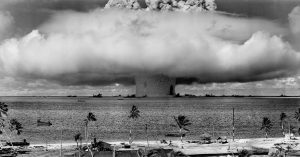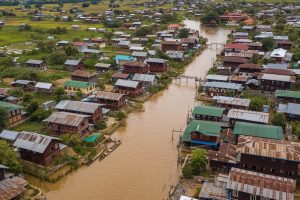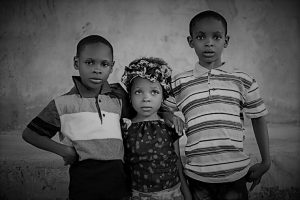Eight months since the flooding began, residents of Unity State in northern South Sudan are still suffering, stuck in poor living conditions, and at risk of outbreaks of communicable and waterborne diseases. They face malnutrition, food insecurity, a loss of income, and a lack of safe drinking water since they are spread across several temporary campsites. Approximately 835,000 people have been affected.
When the levels of floodwater started rising in 21-year-old Nyabeel’s village, she and her husband didn’t know what to do. Leaving the land which they relied on for food was a difficult decision. They spent three days moving with four children and a herd of goats. Nyabeel had relied on milk from her goats as well as cultivating her land for food. They had a more stable life than they do at the campsite, where they now eat one meal a day of maize. She had taken her one-year-old child to MSF’s (Médecins Sans Frontières) mobile clinic in Kuermendoke camp, Rubkona town, for essential vaccinations and treatment for severe malnutrition. Kuermendoke is one of three camps with a high percentage of children under the age of five suffering from severe acute malnutrition.
Dr. Reza Eshaghian, MSF emergency flood response medical team leader says that their nutritional survey demonstrated the prevalence of severe acute malnutrition in the camps to be well above the WHO’s 2% emergency threshold. The impact of the flooding is visible and walking through the camps, one can see the poor conditions such as malnourished children, people fetching dirty flood water to drink, cattle collapsing, and their carcasses lying everywhere, which are harming people’s health.
The impact of the floods
According to Food and Agricultural Organization’s (FAO) initial studies, the floods have damaged about 65,000 hectares of cultivated land and killed over 800,000 livestock across eight of the 10 states of South Sudan. With so much loss in livestock, many displaced women are turning to firewood collection for income. With the increase in food commodity prices, it is becoming more challenging for displaced people to get food.
Following an 80% increase in admissions to the Inpatient Therapeutic Feeding Centre (ITFC), MSF has opened a third ITFC ward at their hospital in Bentiu IDP camp. Their teams are also operating mobile clinics that visit camps in and around Bentiu, Mayom, and Rubkona regions, responding to malnutrition, malaria, and acute watery diarrhea.
Contaminated water
For most of the displaced people, finding safe drinking water has become almost impossible. Nyapal, a mother of four, says that their only source of drinking, washing, and cooking water is the floodwater. Sanitation facilities in the Bentiu IDP camp were already in poor condition before the flooding. Cawo Yassin Ali, the team leader of the MSF water and sanitation emergency flood response team says that for a while, flooding deemed it impossible to access the waste treatment ponds. This caused an accumulation of sewage in the camp latrines, which then overflowed into the open sewer canals where children often play.
To mitigate the risk of outbreaks, MSF has built a sewage treatment plant to contain and treat fecal waste inside Bentiu camp.
Immediate action needed
With the water levels slowly receding around Bentiu, it’s still unclear as to when Nyabeel, Nyapal, and thousands of other displaced people can return home. They have nothing in the camps since they came empty-handed, their village is covered with water, and they don’t know when it will dry.
Until they can return home, they are forced to continue living in such hazardous conditions. This poses another challenge for humanitarian actors, who are now required to not lose sight of responding to urgent needs while recognizing the prolonged nature of this crisis and achieving equal standards beyond the primary emergency threshold.
Dr. Eshaghian says that there are immense needs, including the need for quality healthcare, proper shelters, clean water and sanitation infrastructure, food security, and livelihood support. Humanitarian groups, the South Sudanese Government, and donors should act now before it is too late. They cannot afford to wait any longer. To follow up on the situation in South Sudan and other humanitarian countries, subscribe to our newsletter for daily updates.







